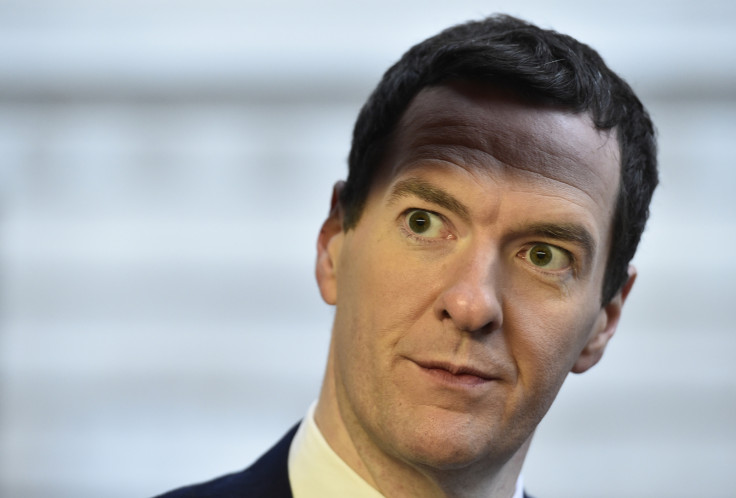George Osborne could have cost UK economy 5% in GDP with spending cuts, says NIESR

The Chancellor's decision to impose deep spending cuts in 2010 may have cost the UK economy 5% in GDP, according to National Institute of Economic and Social Research (NIESR).
The thinktank, which published assessments of the Coalition Government's record in its National Institute Economic Review, found that George Osborne's austerity measures were overaggressive.
Simon Wren-Lewis, Professor of Economics at the University of Oxford, examined macroeconomic policy and performance.
He argued that structural change has been a "success" but the Treasury's macroeconomic policy has been "largely a failure" in economic and political terms.
Wren-Lewis said that accelerated fiscal consolidation in 2010 was an "unnecessary risk", which has caused "significant damage".
"The delay in the UK recovery over the first part of the coalition government's term is at least in part a result of the government's fiscal decisions," the professor said.
"I have argued that these decisions were a mistake... It will be many years before we can settle on a figure for the total cost of that mistake, but measured against the scale of how much governments can influence the welfare of its citizens in peace time, it is likely to be a large cost."
Elsewhere, Nicholas Crafts, Professor of Economics at the University of Warwick, looked at supply-side policies and the impact on growth.
He argued that policy has not deviated significantly from the pre-crisis path.
"Changes in policy under the Coalition government are unlikely to have made a big difference to growth potential. On the one hand, this means opportunities for radical reform have been ignored; on the other hand, there has been no repeat of the 1930s' debacle," he said.
The research comes with less than 100 days to go before the general election.
The Conservatives have been campaigning hard on the economy and David Cameron has promised that a Tory government would "reward" the UK with £7bn worth of tax cuts for enduring the 2008 financial crisis and the subsequent recession.
Cameron said a Conservative administration would raise the basic rate income tax threshold to £12,500 ($18,763, €16,706) and anyone on the National Minimum Wage (£6.50 per hour for those 21 and over) on 30 hours a week would be lifted out of income tax.
The prime minister also said a Conservative government would raise the threshold for paying the 40p rate of tax to £50,000.
But Labour, in response to the speech, claimed the government has "put a privileged few over hard working people".
"Cameron and Nick Clegg should be judged on their record of raising tax on ordinary families while giving millionaires a huge tax cut. They have put a privileged few over hard-working people," said Chris Leslie MP, Labour's shadow chief secretary to the Treasury.
"As the Institute for Fiscal Studies said last week, tax and benefit changes under this government have left households £1,127 a year worse off on average.
"Broken promises on VAT and tax credits have more than outweighed changes to the personal allowance.
"Cameron is now desperately making £7bn of unfunded tax promises. He needs to come clean about whether these would be paid for by another Tory VAT rise, even deeper spending cuts or both."
© Copyright IBTimes 2025. All rights reserved.






















